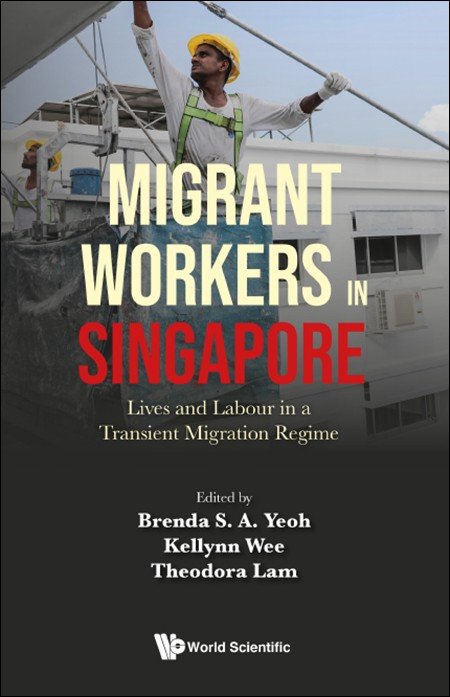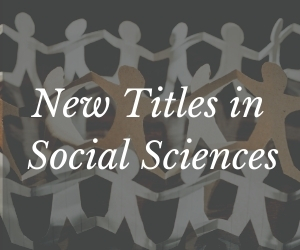System Upgrade on Tue, May 28th, 2024 at 2am (EDT)
Existing users will be able to log into the site and access content. However, E-commerce and registration of new users may not be available for up to 12 hours.For online purchase, please visit us again. Contact us at customercare@wspc.com for any enquiries.
Initially upheld as a bastion of success in curbing the spread of COVID-19, Singapore eventually found itself home to the highest number of coronavirus cases in Southeast Asia. Over 90% of its cases in 2020 occurred among the 300,000 migrant construction workers primarily from Bangladesh, India, and China who live as part of a transient population in this city-state.
This collection looks beyond the immediacy of heightened concerns surrounding the migrant worker population in the time of the COVID-19 crisis. It gives attention to broader questions of migrant lives and labour in a city-state that has thrived on migration since its beginnings as a colonial entrepôt. Serving as a primer for the general and academic reader interested in developing a richer understanding of the structural conditions of migrant construction work, the book draws together key studies on migrant construction work in Singapore.
The chapters in this volume, contributed by a range of academic experts, spotlight the processes of unequal global development, precarious work, and welfare exclusion that have rendered low-waged labour migrants especially vulnerable to the pandemic. They also highlight migrant men's social identities beyond the sphere of work by attending to their experiences and strategies as members of transnational families and social-cultural communities. Accompanying the chapters are short reflections from the authors that not only summarise the findings but also provide updates on the research context in view of the recent situation.
Sample Chapter(s)
Migrant Construction Workers in Singapore: An Introduction
Contents:
- Migrant Construction Workers in Singapore: An Introduction (Kellynn Wee, Theodora Lam and Brenda S A Yeoh FBA)
- A Regime of Temporary Migration:
- Migrant Workers and the Politics of (Im)Mobility (Brenda S A Yeoh, Grace Baey, Maria Platt and Kellynn Wee)
- Bangladeshi Construction Workers and the Politics of (Im)Mobility in Singapore (Brenda S A Yeoh, Grace Baey, Maria Platt and Kellynn Wee)
- Legal Protection and Migrant Rights: The COVID-19 Outbreak in Singapore (Jaclyn L Neo)
- Riots and Rights: Law and Exclusion in Singapore's Migrant Worker Regime (Jaclyn L Neo)
- From the 'Little India Riot' to the COVID-19 Pandemic: Migrant Workers and Public Space in Singapore (Shona Loong)
- 'This Country, Law Very Strong': Securitization Beyond the Border in the Everyday Lives of Bangladeshi Migrant Workers in Singapore (Shona Loong)
- Dealing with Deportability in a Pandemic-hit Labour Migration Regime (Charanpal S Bal)
- Dealing with Deportability: Deportation Laws and the Political Personhood of Temporary Migrant Workers in Singapore (Charanpal S Bal)
- Work Conditions and Health Concerns:
- Health, Safety and Well-being: Listening to the Voices of Migrant Workers in a Pandemic (Mohan J Dutta)
- Migration and Health in the Construction Industry: Culturally Centering Voices of Bangladeshi Workers in Singapore (Mohan J Dutta)
- Compounding Precarity in Migrant Worker Trajectories (Grace Baey and Brenda S A Yeoh)
- 'The Lottery of My Life': Migration Trajectories and the Production of Precarity Among Bangladeshi Migrant Workers in Singapore's Construction Industry (Grace Baey and Brenda S A Yeoh)
- Healthcare for Migrant Workers in Singapore: Insights from the COVID-19 Experience (Jia Wei Ang, Colin Chia, Calvin J Koh, Brandon W B Chua, Shyamala Narayanaswamy, Limin Wijaya, Lai Gwen Chan, Wei Leong Goh and Shawn Vasoo)
- Healthcare-seeking Behaviour, Barriers and Mental Health of Non-domestic Migrant Workers in Singapore (Jia Wei Ang, Colin Chia, Calvin J Koh, Brandon W B Chua, Shyamala Narayanaswamy, Limin Wijaya, Lai Gwen Chan, Wei Leong Goh and Shawn Vasoo)
- Social Connections, Personal Lives:
- Urban Liveability and Low-wage Migrants in Pandemic Times (Tim Bunnell and Laavanya Kathiravelu)
- Extending Urban Liveability: Friendship and Sociality in the Lives of Low-wage Migrants (Tim Bunnell and Laavanya Kathiravelu)
- Migrant Workers and Mobile Communication in Pandemic Times (Arul Chib and Rajiv G Aricat)
- Belonging and Communicating in a Bounded Cosmopolitanism: The Role of Mobile Phones in the Integration of Transnational Migrants in Singapore (Arul Chib and Rajiv G Aricat)
- Pandemic and Precarity: Migrant Masculinities in Singapore During COVID-19 (Junjia Ye)
- Migrant Masculinities: Bangladeshi Men in Singapore's Labour Force (Junjia Ye)
- Remittances, Migrant Households and Pandemic Resilience in Rural Bangladesh (Mohammad Jalal Uddin Sikder and Vaughan Higgins)
- Remittances and Social Resilience of Migrant Households in Rural Bangladesh (Mohammad Jalal Uddin Sikder and Vaughan Higgins)
- A Migrant's Eye View:
- "The Death of Wishes" (Joy Ho and Md. Sharif Uddin)
Readership: Undergraduate and graduate students, researchers and practitioners interested in low-waged migrant worker issues in Singapore.




